Impact Report 2022-2023

A Message from Leadership
It is hard to believe that a decade has passed since Health Net of West Michigan was founded – and what a journey it has been! We have grown from a smallish 20-person staff serving 2,000 clients per year to a staff of nearly 50, serving upwards of 10,000 Kent County community members annually. When we began, there wasn’t a lot of talk about social determinants/drivers of health, the need to help individuals and families navigate complex systems to access services, or the importance of providing services using a trauma-informed lens…fast forward ten years, and Health Net has been at the center of those conversations at a local, state, and national level. Not only have we expanded our direct navigation case management services significantly, but we have established a training department to teach other professionals and organizations how to use our Care Model©, refined and focused our vision and mission by weaving health equity throughout everything we do, weathered a pandemic with our staff and work intact….and, most importantly, we have maintained our community focus, steadfast in our belief that where you live, how you look, and the language you speak should not determine how healthy you are.
As we look ahead to our next decade, we are focusing on increasing our collaborations with partners to locate our services in the neighborhoods where they will have the most impact, growing our partnerships at the state level, and continuing to raise our voice at system-level tables…all with the vision of creating a community where everyone has the opportunity to be as healthy as possible. Please join us!
Maureen Kirkwood, President/ CEO
Shannon Wilson, Board President
Upholding a promise to become an Anti-Racist Organization
Becoming an anti-racist organization is a journey our organization is committed to continue throughout all aspects of our organizational culture.
What does this mean for our community partners?
As community partners, we hold a mutual desire to provide high-quality services to improve the lives of the community. We commit to holding ourselves and others accountable to build equitable policies designed with the communities we serve at the forefront. Equitable systems are not built overnight, but we are dedicated every day to learning and growing with our partners, staff, and community to address inequities that cause disparate health outcomes.

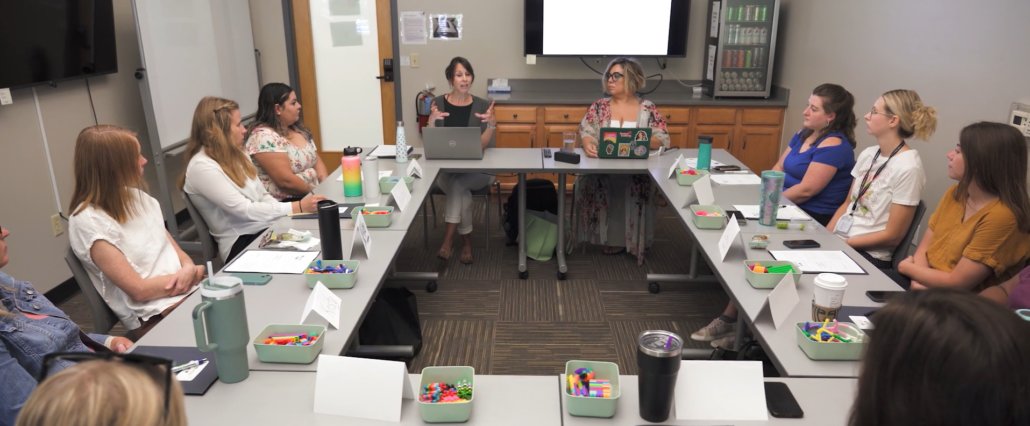
What does this mean for our staff and organizational culture?
Our staff is committed to upholding our organizational values and embarking on our equity journey. This journey begins in the first 90 days of employment through specialized onboarding training grounding staff in the fundamentals of health equity. Education is continued through quarterly all-staff equity events and engaging in ongoing learning opportunities.
What does this mean for our community members?
As clients connect with anyone in our organization, it is paramount that they are met with a team that leads with cultural humility and recognizes clients’ intersectional identities. We strive to build a culture of belonging where partnership is key to meeting the immediate needs of our community. We aim to achieve this through services designed with a multicultural lens and continuous feedback from you about how we can better serve our community.
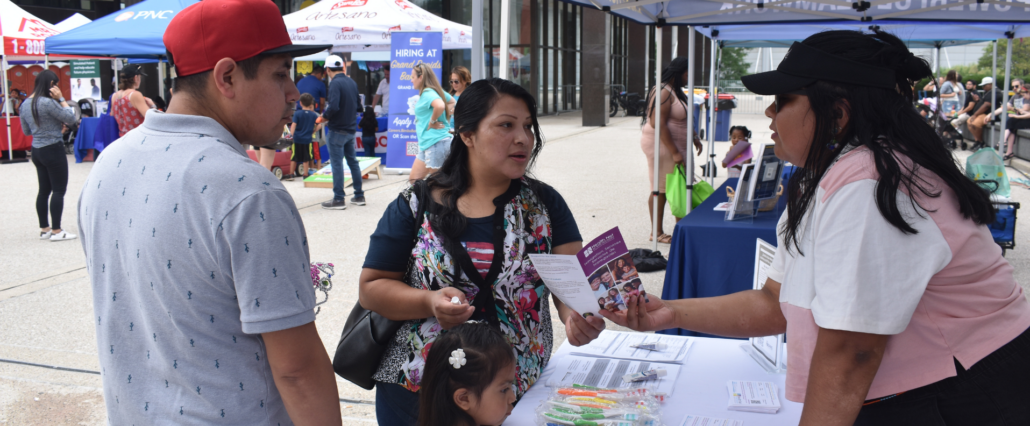
Continuing Our Journey
As we grow in this work, we will document our discoveries and share lessons learned with partner organizations, health institutions, and community members to continue to work together – with the goal of reducing barriers for people to be as healthy as possible.
We began a Multicultural Organizational Development (MCOD) and evaluation process to support us in developing an inclusive organizational culture driven to benefit the community. We partnered with the W.K. Kellogg Foundation and Dr. Dar Mayweather to support us as we dismantle inequitable systems and advocate for our vision of health equity.
The Community We Serve
Understanding the demographics of who we serve, tracking trends, and collaborating with other entities across the state allows us to better collaborate with systemic partners to address the root causes of inequitable health outcomes throughout Michigan and across the nation.
Individuals served through screening efforts for social determinants of health between January 1, 2022 – December 31, 2023, with an increase of 164 more individuals engaged in 2023.
Where Our Clients Live
Understanding where our clients live helps us to contribute to community conversations about barriers to accessing resources and advocating for the needs of our clients throughout Kent County.
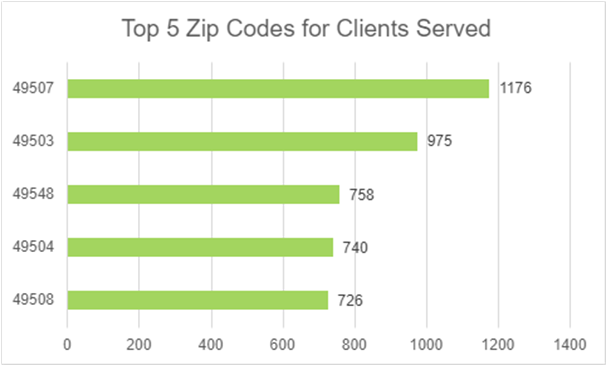
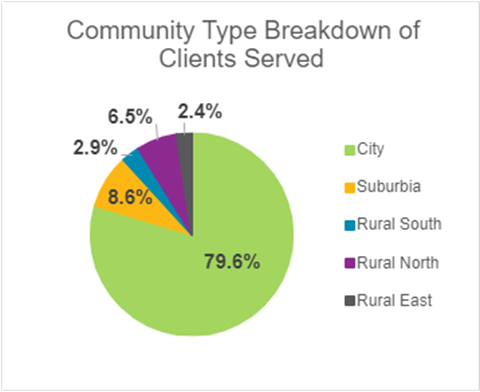
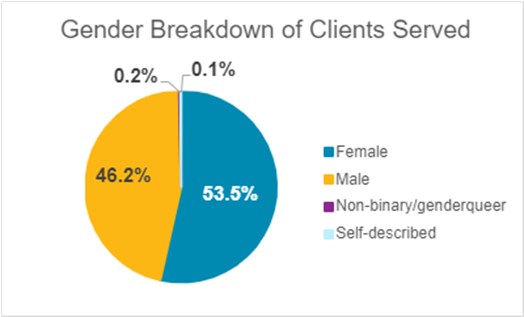
Intersectionality of Identity
Our team is trained in collecting Sexual Orientation Gender Identity (SOGI) data to support best practices in data collection and to signal to our LGBTQ+ communities that gathering data on their needs is important for identifying potential barriers to resources and advocating for equitable policy changes.
Multilingual Community
Access to interpretation services and a workforce equipped with the knowledge of how to interact with an interpreter is important to ensuring equitable access to resources and a more seamless experience for our clients.
Health Coverage
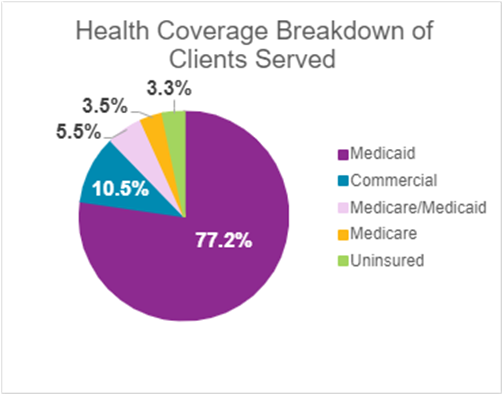
On average in 2022 and 2023, 82.7% of the individuals we served had Medicaid or were dually eligible for Medicaid and Medicare.
With this context in mind, it highlights why supporting our community with high-quality navigation services and community resources to reach their goals is so important to the well-being of those living in our community.
Screening
Screening for Social Determinants of Health has been a formal pillar of our work since engaging in the Accountable Health Communities Model in 2017. These screenings support a holistic view of health including external factors that directly influence an individual’s health and are now becoming a federal requirement of health agencies. We see how pivotal screening for SDoH is to the well-being of our community and are enthusiastic about continuing to play a role in screening efforts as they are replicated and scaled into other systemic spaces.
Centering on Screening, Outreach, and Navigation
Accessibility is key when it comes to finding the right resources. With this in mind, we have piloted several place-based approaches to offering onsite screening, outreach, and navigation with staff members. The place-based approach is an intervention method that meets individuals and families in familiar spaces where they are already engaged in support and allows our team to collaborate with providers, staff, and other professionals. Click each title below to learn about our collaborative efforts with each site.
Supporting young adults experiencing housing insecurity to connect to resources like therapy, food pantries, or resources related to employment. Our team also supports AYA members in completing applications for insurance coverage and new patient paperwork to set up a primary care physician with another partnering agency, Catherine’s Health Center.
As part of our Ready By Five Early Childhood millage award, we have the opportunity to meet with families who have a child who attends Hamilton Early Childhood Center to support them in finding resources to foster the growth and development of their child. Our case manager is on-site during drop-off/pick-up, playgroups, conferences, and special events to greet families while providing information on Health Net services while working alongside the teaching staff and school support staff to ensure needs are met.
At Crossroads Alternative High, our team works alongside students and their families to identify health-related social needs by forming positive relationships in the school setting. In this setting, our team supports parents through a model offering support for the entire family by connecting with the Crossroads student.
Welcoming a baby into your family is a different experience for everyone. Our team is on-site at the hospital to meet with the new parents before they are discharged to ensure they have what they need to bring their new baby home, including access to early childhood programming, education on lactation, and baby care/supplies, and connection to other valuable resources outside of the scope of work of hospital staff.
Community Outreach
Outreach includes any effort from our team to connect with another community organization or client to build trusted relationships. One of the best ways to evaluate our efforts is through consistent engagement with community members.
We regularly ask our clients for feedback to ensure we evolve our service provision and provide high-quality navigation services. These results are carefully considered as we refine our approaches and individuals are asked if they would be interested in participating in future conversations and focus groups. As future engagement opportunities with our organization or other community groups arise, we can connect community members to serve in focus groups and advocacy opportunities and elevate their voices at policy-making tables.
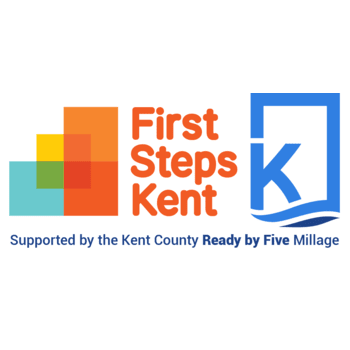
We have also engaged early childhood clients in parent focus groups and offered opportunities for parent leadership through networking opportunities with the Ready by Five Provider Network events and other community events. Parents are offered the support and tools to advocate for the changes they want to see in our community.
From the parent sessions, clients identified the following emerging needs as focus areas for finding community resources.
- Early childhood services
- Housing, transportation, and health coverage
- Language interpretation and employment
Engaging with Intention
Our innovation team, which consists of staff who support relationship building with systemic partners and our community members, set a goal to attend more community events in 2023 to be able to engage with other partners in our community and to build more understanding among our neighbors as to how we could help them to connect to the resources they need to live healthier lives.
In 2023, our Innovation Team participated in 10 community-based events, 8 more events than in 2022, providing an opportunity to reach approximately 6,900 community members across all the events.
Attendance at these events informed community members about how to connect with us, allowed us to talk about how we can support community members, and provided vital information about Healthy Kids Dental and Medicaid redetermination post-pandemic.
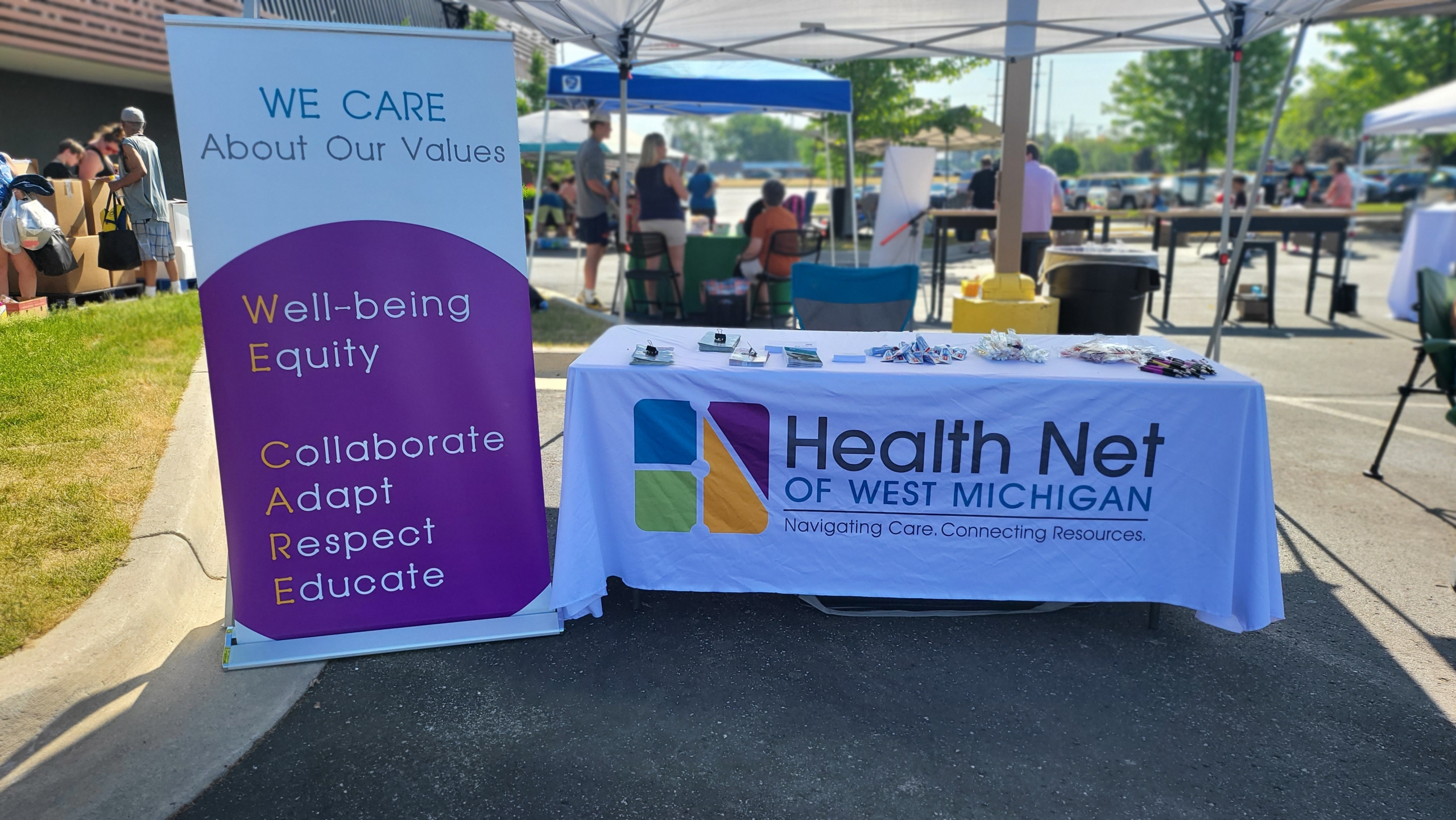
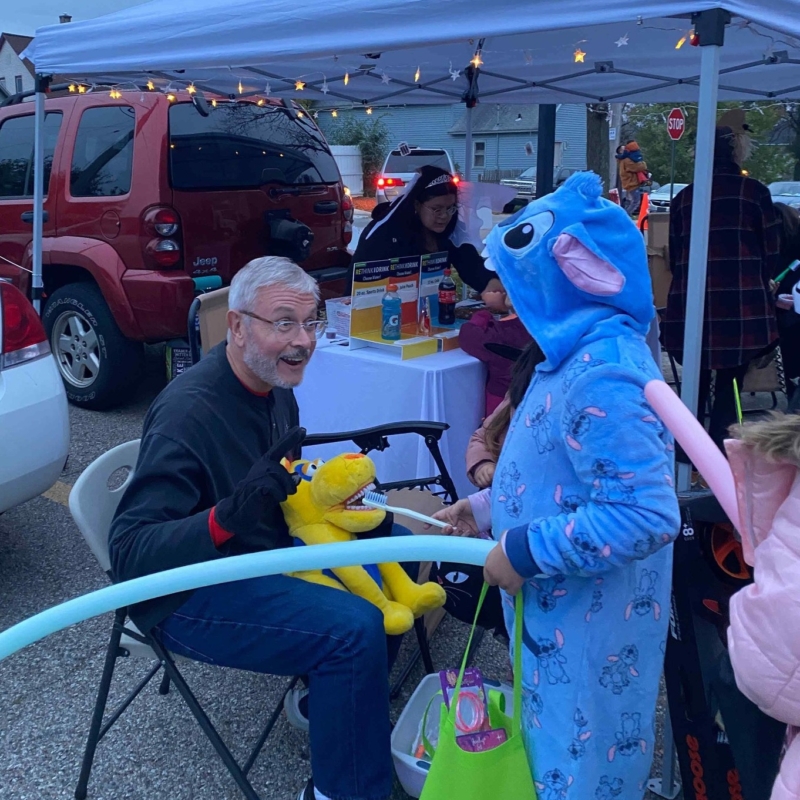
The Kent County Oral Health Coalition developed the Talking Teeth Program which allowed providers to talk to participants about the significance of maintaining healthy oral hygiene habits while offering an opportunity to feel more comfortable sitting in a dental chair without receiving dental treatment.
Through three events, 153 community members met with a dentist/ dental hygienist to sit in the dental chair and talk to a provider, and an additional 409 residents actively engaged with the Talking Teeth program through interactions with providers and participation in a ‘Rethink Your Drink’ activity.
Navigation
Once screening processes are successfully implemented, the next step is community-based navigation services to connect our neighbors to the resources that will alleviate the strain caused by unmet Social Determinants of Health.
In 2023 we received 12,512 self- or partner site referrals.
- 87% of our referrals came from:
- Individuals contacting us to refer themselves for support
- Corewell Health Butterworth Emergency Department
- Corewell Health Helen DeVos Children’s Hospital Emergency Department
- Priority Health
- Corewell Health Butterworth Labor & Delivery
On average in 2022, unique clients who received a referral were connected to 3.2 referrals to a community partner and increased to 4.2 referrals in 2023.
6,315 outbound referrals were created in 2023
- Up 1,201 from 2022
- Outbound referral volume increased in general, but particularly for transportation, shelter/housing, and food
Staff connected clients to resources 92% of the time.
Building a Community of Practice Through Collaboration and Advocacy
More equitable systems are developed through collaborative efforts to advocate for systemic changes. We are supportive changemakers by engaging in local and state-level partnerships that allow us to elevate the voices of our community to policy-making discussions.
MSHIELD (Michigan Social Health Interventions to Eliminate Disparities) is a state-wide collaborative effort with Blue Cross Blue Shield of Michigan to influence system change in health policy and work with partners for solutions to systemic barriers to care.
Regional Health Collaborative– As part of the expanded Promotion of Health Equity Initiative started in 2021, we engage in supporting the development of a statewide infrastructure for SDOH data collection, analytics, and reporting. The aim of the efforts are to identify and understand disparities and leverage data and community partnerships to help enhance the quality of life and remove barriers to lead toward improved health outcomes.
Along with the United Way, Kent County Health Department and Heart of West Michigan United Way, we were chosen to take part in the SDoH hubs pilot to support formalizing key partnerships for service delivery and implantation of a food delivery service pilot as part of the State of Michigan’s 2022- 2024 Social Determinants of Health Strategy.
Community Information Exchange – Building the infrastructure for a Community Information Exchange (CIE) maximizes a person-centered approach by ensuring information is collected only as needed and is stored securely. Another advantage of a CIE is to streamline access to health-enhancing resources like social services and supports, helping to coordinate care between clinical and non-clinical partners, while using data on existing community resources, needs, and gaps to drive policy change.
Engaging in Data
Both our Data and Reporting Manager and Data Engineer began attending the Community Data Trust meetings along with representatives from DataWise, the Johnson Center, the Essential Needs Taskforce, Kent County Health Department, and others. The group aims to bring methods of collective impact to data sharing and data use through efforts like setting standards for exchanging and using information, providing legal and technical support, like master data sharing agreements aiming to reduce duplicative or one-off data agreements, and offering peer support and professional development.
Education
Over the past two years, we have further developed our organizational value of Education by creating relationships within our community to best serve our neighbors with high-quality services and positive experiences.
Leveraging our extensive expertise as community resource navigators, we’ve carefully crafted our copyrighted Care Model ©—a culmination of best practices in community navigation—into a comprehensive training series. Rooted in principles of equity and empowerment, The Care Model© provides a structured framework designed to empower frontline staff and their supervisors for success. By championing the widespread adoption of this model throughout our community, our goal is to elevate the standard of service delivery, enhance efficiency, and ultimately, drive better outcomes for all individuals within our community.
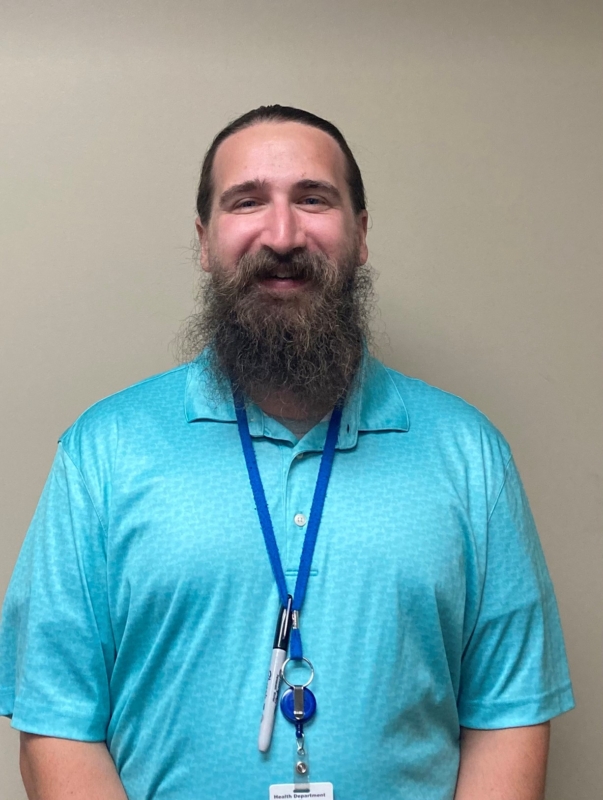
Through preliminary research, we discovered that there wasn’t training developed specifically to support supervisors of social services navigators to feel equipped to support their teams. The Supervisor Learning Cohort was born out of this need and was developed to encourage relationships across partner agencies to share best practices and create an environment for increased collaboration where supervisors identify a framework for supervision and develop new competencies to be successful in their crucial roles. Supervision is a key component to effective service delivery and staff engagement and retention.
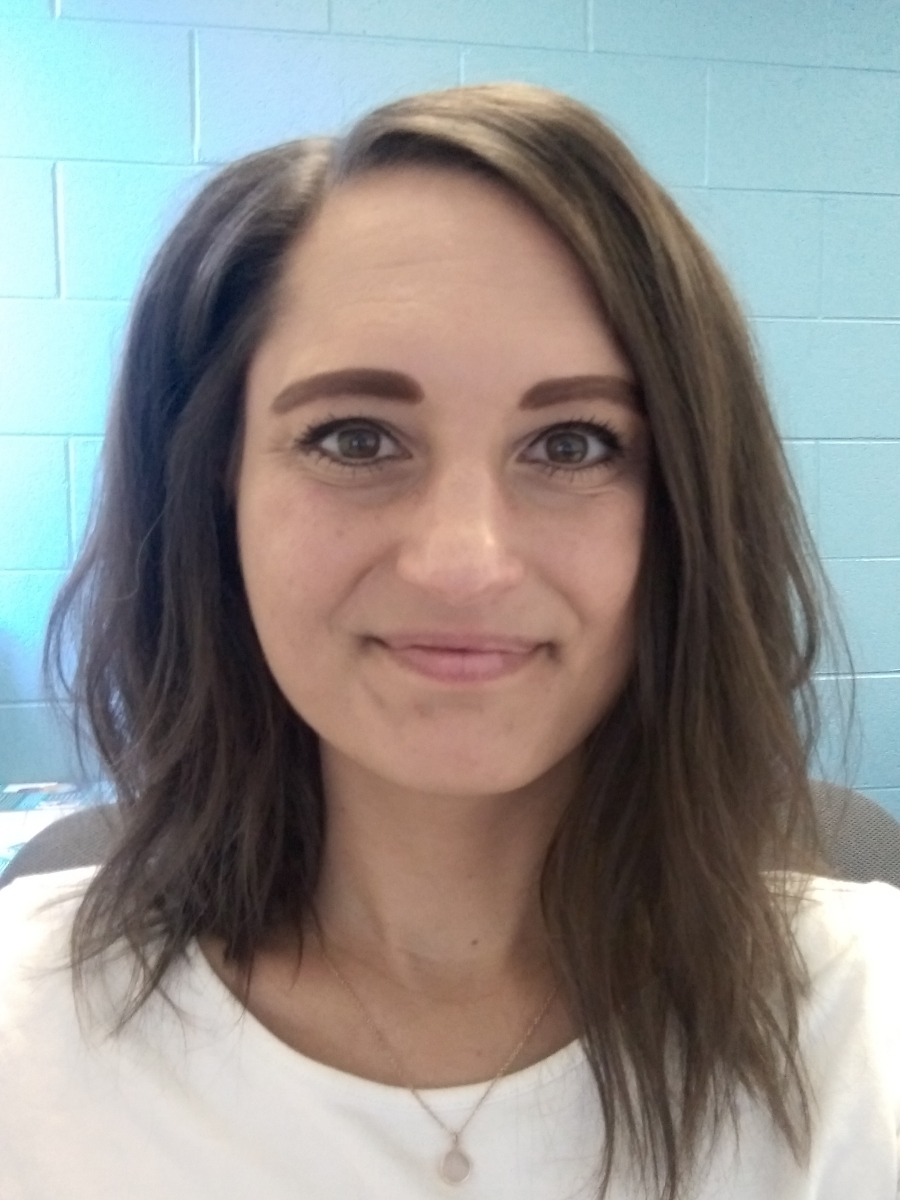
Sharing Training Experience
In November 2023, we had the opportunity to take part in a Beehive Poster presentation at the Camden Coalition’s Putting Care at the Center Conference to talk about the positive impacts the Care Model© and Supervisory Learning Cohort courses had on the Early Childhood Ecosystem of Care in Kent County.
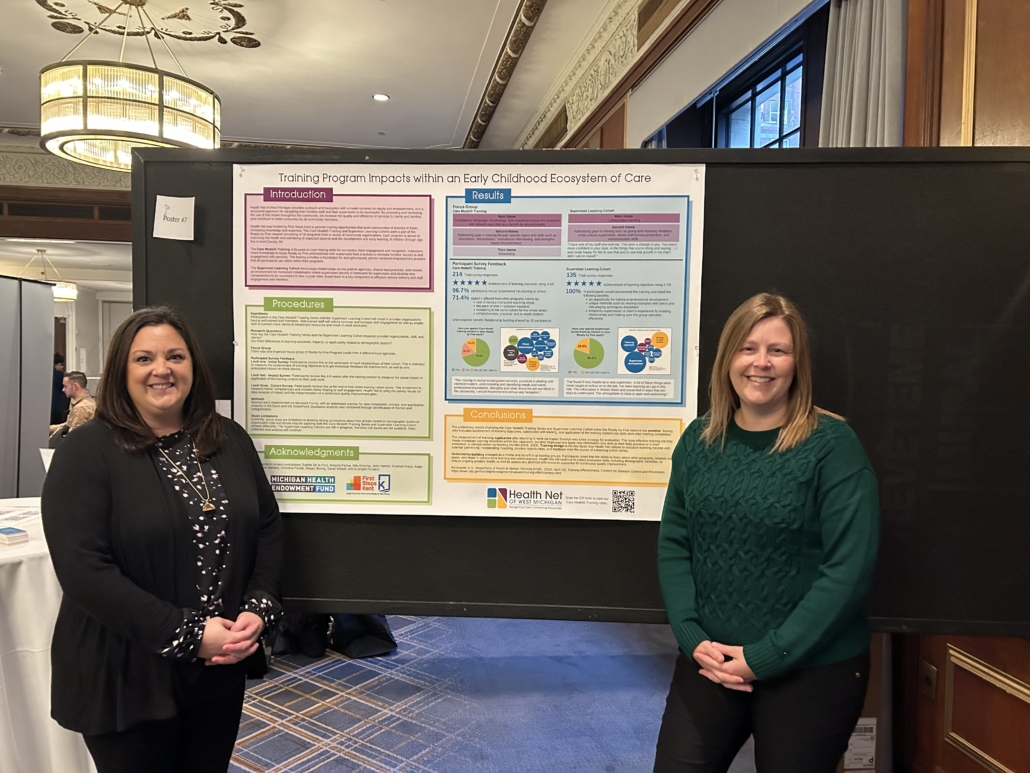
Support Us
Are you as passionate about our mission as we are? Join us in making a difference by becoming a monthly contributor to our organization! With contributions from dedicated individuals like you, we can maximize funding, provide crucial assistance to our neighbors when traditional resources are exhausted, and maintain the infrastructure needed to develop innovative solutions to healthcare access barriers.
Together, we can create lasting change and ensure that our community has every opportunity to pursue better health. Click here to donate.